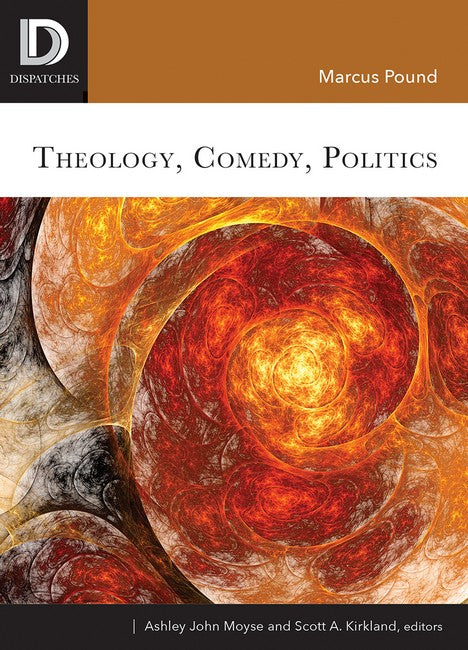Marcus Pound is Assistant Director of the Centre for Catholic Studies, Durham University, where he is also Associate Professor of Theology. He has taught at Bristol University, Birkbeck College London, and Nottingham University. He is the author of Theology, Psychoanalysis, and Trauma (SCM, 2007), and Slavoj Zizek: A (Very) Critical Introduction (Eerdmans, 2008) and has co-edited Theology After Lacan (Wipf & Stock, 2015). Ashley John Moyse is a postdoctoral fellow in theology and science at Regent College in Vancouver. Scott A. Kirkland is an honorary postdoctoral research associate at Trinity College, University of Divinity, Melbourne.
Description
Preface Introduction 1: The Three Elisions of Comedy 2: The Metaphysics of Comedy 3: Comedy and Trinity 4: Comedy and Politics Conclusion Bibliography Index
"A strikingly creative thesis." --Professor Terry Eagleton, Lancaster University "Marcus Pound is probably the best person working at the intersection of theology and psychoanalysis. His analysis of comedy and its importance for Christianity and our current society here is profound, beautiful, and important. Here, love is structured like a joke and laughter is our shared practice of love that resists consumer capitalism. This book is smart, clear, and also it is extremely funny!" --Professor Clayton Crockett, University of Central Arkansas and the Global Center for Advanced Studies "The great gift of this book is that it is a serious engagement with comedy by a theologian. We are living through a comedy revolution. There has been quite simply an explosion of comedy both live and streamed. Never has there been a more important time for this topic to come to the fore in theological work. Marcus Pound sets out to explore the depths of our obsession with comedy, and he finds his answer in a comedic God." --Pete Ward, professor of practical theology, Durham University "Pound bypasses the common image of Christianity as a religion of tragedy both historically as well as theologically to present an insightful and exhilarant theology of comedy. This goes beyond the scope of historical questions to fashion a theological response to the problems incited by the contemporary, postmodern imperative of capitalist enjoyment: a funny and illuminative read." --Dr Florian Klug, assistant professor of Catholic theology at the University of Wurzberg

